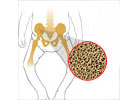Iron is vital for the development of brain. It also plays an important role in the formation of Red Blood Cells (RBC), which carry oxygen to body tissues. Newborn babies receive their iron stores while in the mother’s womb, which means the mother’s diet plays an important role during pregnancy. Low birth weight or premature babies are at increased risk of iron deficiency.
When you think of a child with iron deficiency, the first thing that comes to your mind is a pale, weak child who gets tired easily, but you rarely think of a child who is hyperactive or has ADHD. A new study conducted in low birth weight babies now shows a link between low iron levels and possible behavioral problems such as ADHD.This study published in the Pediatrics journal, entitled “Effects of Iron Supplementation on LBW Infants on Cognition and Behavior at 3 Years” was conducted by the scientists at Umeå University in Sweden. The study was released online on Dec 10, 2012. Researchers found that giving iron supplements to low birth weight babies may deter behavioral problems and lower the risk of ADHD later in life.
The study was a randomized controlled trial, wherein researchers compared 285 marginally low birth weight infants, defined as weighing between 2,000 and 2,500 grams or about 4.4 to 5.5 pounds with 95 infants who had normal birth weight. Researchers randomly administered the low birth weight babies with 0, 1, or 2mg/kg of iron supplement a day from six weeks of age to six months of age.
At age three-and-a-half, these infants were assessed for intelligence and behavior. The intelligence test was the primary outcome and the behavioral assessment was the secondary outcome. It was found that there were no significant differences in IQ between the low birth weight groups and the normal-weight control group. Hence it was concluded that the iron supplements did not show an effect when it dealt with intelligence.
However, for behavioral problems like ADHD, there was a significant effect from the iron supplements. Of the low birth weight infants who received no iron supplements, 12.7 percent showed signs of behavior problems, compared to 2.9 percent of infants in the 1-mg group and 2.7 percent of the 2-mg group. In the control group, 3.2 percent of children showed signs of behavioral problems.
The researchers wrote "These results not only suggest that the increased risk of behavioral problems in children with low birth weight may be partially prevented but also lend support to a causal relationship between preventive iron supplementation and improved neurobehavioral development in infants at risk for iron deficiency."
Reference:
2. Iron may give small Babies Behavioral Boost, Medpage Today
Source-Medindia











